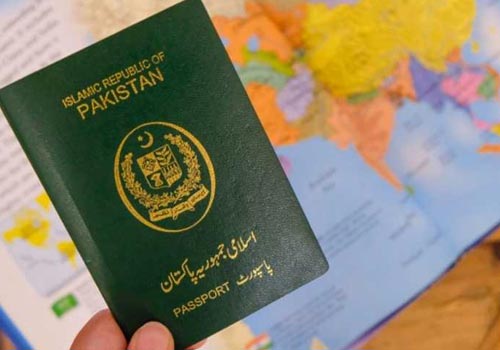
The dream of a spontaneous, hassle-free trip to the "Land of Smiles" is a tantalizing prospect for many Pakistani travelers. Recent discussions and an evolving global travel landscape have sparked hope that Thailand considers visa-free entry for Pakistan. While this is a highly anticipated development, it is crucial to understand the current situation and the potential implications of such a change. This comprehensive article delves into the current Thailand visa policy, outlines the necessary steps for obtaining a Thailand visa under the existing rules, and provides a detailed look at what travelers can expect if visa-free entry becomes a reality.
Current Status: Why a Thailand Visa is Still Required for Pakistani Citizens
As of mid-2025, the official stance is that Pakistani citizens still require a visa to enter Thailand. Despite Thailand's proactive efforts to boost tourism by extending visa-free and visa-on-arrival (VOA) privileges to numerous other countries, Pakistani passport holders are not included in these schemes. This means that any Pakistani planning to visit Thailand for tourism, business, or any other purpose must secure a Thailand visa before departure.
The visa policy is a dynamic tool used by the Thai government to manage tourism flow, national security, and diplomatic relations. While the idea of a visa-free entry for Pakistan is being discussed, it is part of a broader, ongoing strategic evaluation of Thailand’s tourism sector. These discussions are complex and involve balancing the desire to increase tourist arrivals with immigration controls and security concerns.
For now, the absence of a visa-free entry scheme means that Pakistani travelers must meticulously prepare their visa application to avoid any travel disruptions. The primary options available are the e-Visa and the conventional application process at the Royal Thai Embassy in Islamabad or the Consulate-General in Karachi.
The Existing Process: Securing Your Thailand Visa
Until a visa-free policy is formally announced, Pakistani travelers must adhere to the current Thailand visa requirements. The application process, whether through the new e-Visa system or an older, physical method, requires careful attention to detail.
Applying for a Thailand E-Visa
Since January 2025, the Royal Thai Embassy in Islamabad and the Royal Thai Consulate-General in Karachi have transitioned to an e-Visa system. This streamlined process aims to make the visa application more efficient for Pakistani citizens.
Online Application: All applications for a Thailand visa are now submitted online via the official Thai e-Visa website. This eliminates the need for an in-person visit to the embassy to submit documents, although some may still be required to visit for other purposes.
Document Upload: Applicants are required to digitally upload all necessary documents. This includes a valid passport, recent photograph, and financial and travel proofs. The system is designed to be user-friendly, but accuracy is paramount. Incorrect or fraudulent documents can lead to immediate rejection and potential blacklisting.
Offline Fee Payment: While the application is online, the visa fee must be paid at the Royal Thai Embassy or Consulate-General in person, as per the current instructions.
Processing Time: The estimated processing time for an e-Visa is approximately 14 working days after the fee has been received and acknowledged. However, this can vary, and it is always wise to apply well in advance of your travel date.
Table of Required Documents for a Tourist Visa (e-Visa)
A comprehensive and well-organized set of documents is the key to a successful visa application. The following table outlines the essential documents required for Pakistani passport holders applying for a tourist visa:
| Document Type | Specifics |
|---|---|
| Passport | Valid for at least six months from the date of entry into Thailand and with at least two blank pages. |
| Photographs | A recent passport-sized photograph (taken within the last six months). |
| CNIC | A copy of the National Identity Card. |
| Flight Itinerary | Confirmed return tickets showing your entry and exit from Thailand. |
| Proof of Accommodation | Confirmed hotel bookings or an invitation letter from a host in Thailand. |
| Proof of Financial Means | Bank statements for the last three to six months, with a minimum closing balance of 20,000 THB per person (or its equivalent in PKR). An account maintenance certificate is also required. |
| Employment/Sponsor Letter | A letter from your employer or a sponsor stating your position, salary, and granting leave. For business owners, proof of business registration (NTN certificate) is needed. |
What to Expect If Thailand Grants Visa-Free Entry for Pakistan
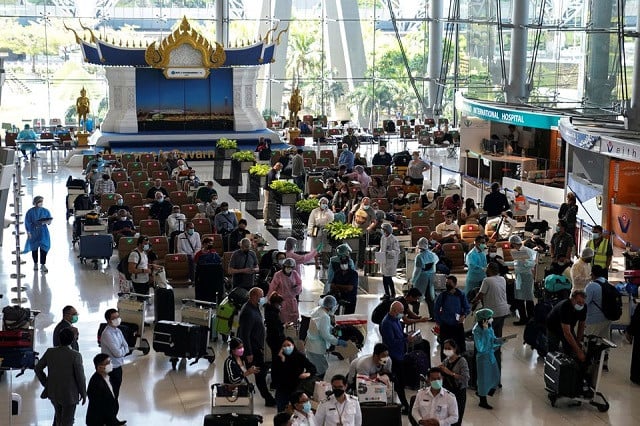
The potential shift to visa-free entry would be a monumental change for Pakistani travelers. It would not only simplify travel logistics but also significantly boost tourism from Pakistan. If the Thai government decides that Thailand considers visa-free entry for Pakistan and then makes it official, here's a detailed look at what travelers can likely expect.
The New Reality of Visa-Free Travel
Visa-free entry does not mean that all travel restrictions are lifted. Instead, it signifies a streamlined process where travelers no longer need to apply for a visa in advance. They can simply arrive at a Thai port of entry and be granted a stay for a specified period. This is a crucial distinction from the current system.
Simplified Entry Process: The most significant change would be at the airport. Instead of going to a separate counter for a visa application, travelers would proceed directly to immigration. The process would be much faster, with officials verifying the passport and other basic travel documents.
No Visa Fee: A major benefit of visa-free entry is the elimination of the visa fee. This would make travel to Thailand more affordable for many.
No Pre-Arranged Documentation: Travelers would no longer need to submit a comprehensive set of documents (like bank statements or hotel bookings) to an embassy beforehand. The focus would shift to carrying these documents for potential inspection by immigration officers upon arrival.
Conditions for Visa-Free Travel
Even with a visa-free policy, there would still be important conditions to meet. These conditions are in place to ensure that travelers are genuine tourists and do not overstay their welcome.
Passport Validity: Your Pakistani passport would still need to be valid for at least six months from the date of your intended departure from Thailand.
Length of Stay: The most likely duration for visa-free entry would be 30 days. This aligns with the recent policy changes Thailand has made for other nationalities. There may also be an option to extend the stay for an additional period at a local immigration office for a fee.
Proof of Onward Travel: Immigration officials would likely require you to show a confirmed return ticket or an onward ticket to another country. This is a standard practice to prevent overstaying.
Proof of Funds: Even with visa-free entry, travelers must be prepared to show proof of sufficient funds to cover their stay. The required amount is typically around 10,000 THB per person or 20,000 THB per family. While this may not be checked for every traveler, having the funds readily available is essential.
Digital Arrival Card: Since May 2025, Thailand has implemented the Thailand Digital Arrival Card (TDAC), which replaces the physical TM6 arrival form. All foreign nationals, including those with visa-free entry, must complete this online form before arriving in the country.
Why Is Thailand Considering Visa-Free Entry for Pakistan Now?
The decision for a country to grant visa-free entry to another is a strategic one, driven by several factors, primarily economic and diplomatic. For Thailand, the primary motivation is to revitalize its tourism industry and meet ambitious tourism revenue targets. The government has identified several key markets for growth, and Pakistan is a significant emerging market.
Growing Tourism Market: Pakistan's growing middle class and increasing interest in international travel make it an attractive market for Thailand. A visa-free policy would likely lead to a substantial increase in tourist arrivals from Pakistan, benefiting airlines, hotels, and the broader tourism sector.
Competitive Advantage: By offering visa-free entry to Pakistani citizens, Thailand would gain a competitive advantage over other destinations that still require a visa. This could make Thailand a more popular choice for Pakistani tourists seeking a convenient and easy-to-plan vacation.
Economic Benefits: The influx of tourists would inject much-needed revenue into Thailand’s economy. This includes spending on flights, accommodation, food, shopping, and activities, all of which contribute to economic growth.
Ease of Travel: The Thai government is continuously looking for ways to make travel easier and more attractive. The move to a new e-Visa system and the introduction of the TDAC are part of this broader initiative. A visa-free entry scheme would be the next logical step in this evolution, further simplifying the travel experience.
It is important to note that any potential announcement about visa-free entry for Pakistan would be a carefully calculated decision. It would be based on a thorough analysis of economic projections, security considerations, and the readiness of immigration systems to handle a surge in arrivals.
Conclusion: The Path Forward for Pakistani Travelers
The news that Thailand considers visa-free entry for Pakistan is a very positive sign, but it is not yet a reality. For now, all Pakistani passport holders must continue to follow the current visa application procedures. The new e-Visa system has already made the process more convenient, and a successful application requires careful adherence to the official requirements.
The shift to a visa-free policy would be a game-changer, transforming the travel experience for thousands of Pakistani tourists. It would mean more affordable, spontaneous, and convenient trips to Thailand. Until then, stay informed by checking the official sources, prepare your visa application diligently, and get ready for a potential future where the Land of Smiles is just a plane ride away, with no visa required.
;More Travel News
-
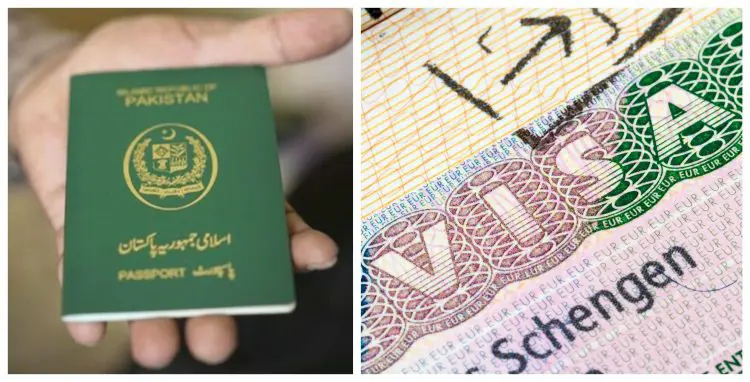 20-Jun-2025Sweden Schengen Visa Financial Requirements for Pakistani Applicants:
20-Jun-2025Sweden Schengen Visa Financial Requirements for Pakistani Applicants: -
 17-Jan-2025Decline in Overseas Employment - Pakistan Records 15% Fewer Migrants As Compared to 2023
17-Jan-2025Decline in Overseas Employment - Pakistan Records 15% Fewer Migrants As Compared to 2023 -
 17-Apr-2021Covid Travel Insurance Pakistan
17-Apr-2021Covid Travel Insurance Pakistan -
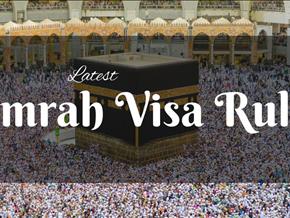 18-Dec-2024Umrah Visa Rules for 2025
18-Dec-2024Umrah Visa Rules for 2025 -
 21-Dec-2025Pakistan to Install Advanced E-Gates at Major Airports
21-Dec-2025Pakistan to Install Advanced E-Gates at Major Airports -
 22-Apr-2020Saudi Arabia Allow to Offer 10 Rakats Taraweeh Prayers
22-Apr-2020Saudi Arabia Allow to Offer 10 Rakats Taraweeh Prayers -
 09-Dec-2024Significance of Tawaf
09-Dec-2024Significance of Tawaf -
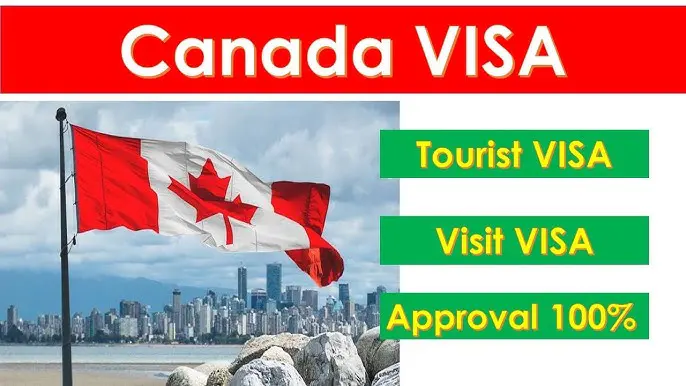 13-May-2025Canada Visitor Visa: Navigating Entry for Tourism, Business, and Family in 2025
13-May-2025Canada Visitor Visa: Navigating Entry for Tourism, Business, and Family in 2025 -
 28-Oct-2024Umrah Packing List: What to Take for Umrah
28-Oct-2024Umrah Packing List: What to Take for Umrah -
 19-Mar-2019How to Manage your Finance while Travelling?
19-Mar-2019How to Manage your Finance while Travelling? -
 26-Jan-2022Best Attractions to Visit in Turkey During Winter
26-Jan-2022Best Attractions to Visit in Turkey During Winter -
 10-Oct-2019Family Umrah Packages Prices Pakistan 2019
10-Oct-2019Family Umrah Packages Prices Pakistan 2019
